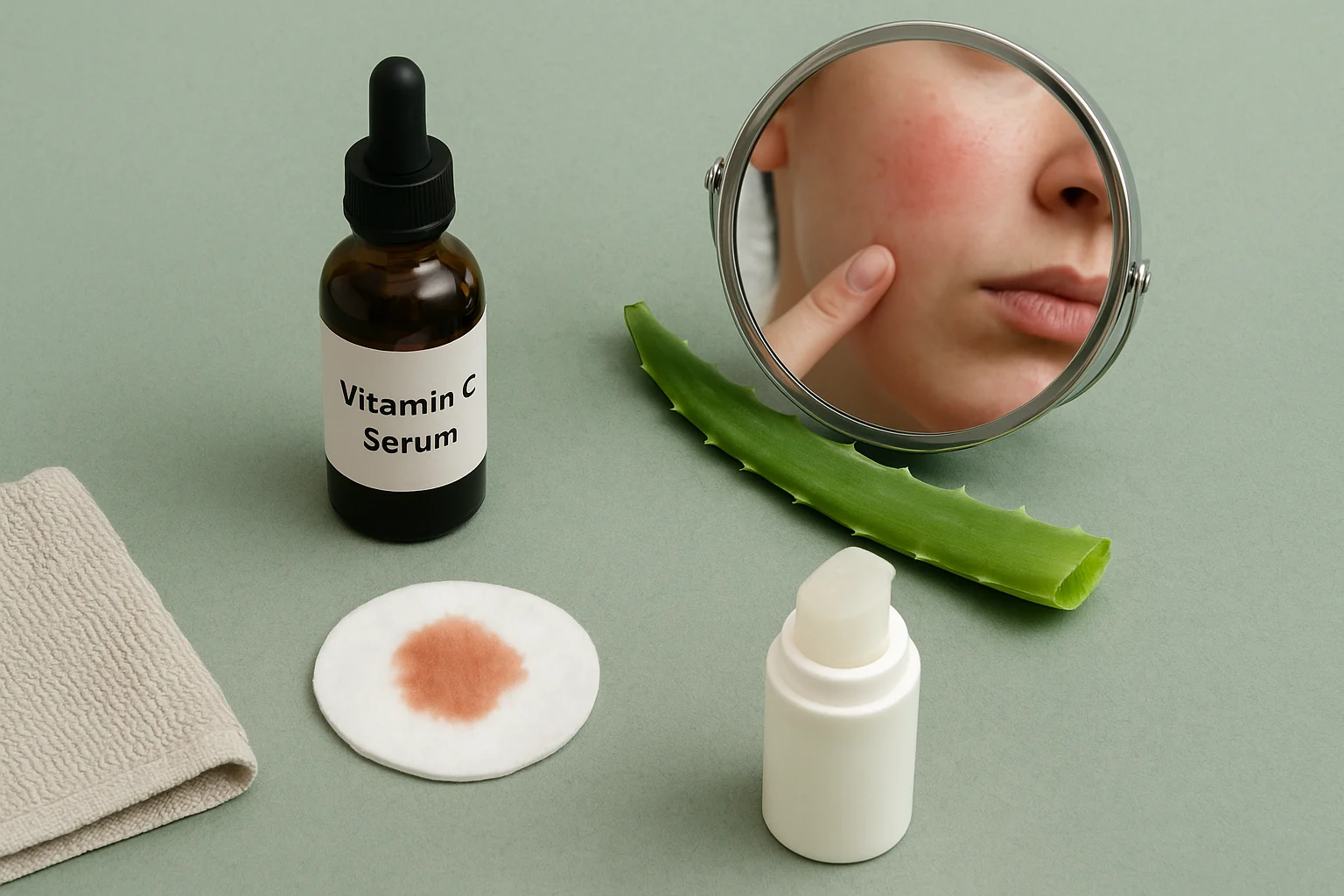Vitamin C serums are everywhere. Scroll through skincare tips, and it’s hard to miss someone swearing by its glow. But here’s the other side of the coin—some downsides. And if you’re thinking about using it, especially on your face, you need to know what you’re walking into before you slap it on.
What are the actual side effects?
Vitamin C serum can cause redness, stinging, peeling, breakouts, or dark patches when misused or on sensitive skin. Some serums oxidise fast, making them useless and possibly irritating or damaging.
Your skin doesn’t always like vitamin C right away. You might feel a sting the first time you try it. That tingling is your skin reacting; while it’s common, it doesn’t mean it’s always fine. For some people, it means to stop.
Redness and dry patches usually appear if you use an intense serum or apply too much to your skin. You could wake up with your face feeling tight or even flaky.
Acne-prone skin can also react. Some serums clog pores or trigger breakouts, especially if your skin is already inflamed or sensitive.
Another problem? Oxidation. Vitamin C breaks down when exposed to air, light, or heat. That golden serum turns brown and becomes useless—or worse, harmful. Using oxidised serum can darken your skin or cause bumps, especially if you’re layering it with other actives.
Why do these things happen
Side effects usually happen when you use too much, mix it with the wrong stuff, or ignore your skin’s limits. Concentration, pH, product age, and what you pair it with all matter.
Most serums range between 10% and 20% vitamin C. That might sound like just a number, but it makes a big difference for your skin. A 10% serum can brighten gently. A 20% one can be too much if your skin isn’t used to it.
And then there’s the pH. Lower pH serums (around 3.5) absorb better but are more likely to sting. If your skin’s already dry, damaged, or inflamed, the acid will make it worse.
Now, let’s talk about your routine. Mixing vitamin C with other strong ingredients like retinol or glycolic acid is a bad combo. It’s like mixing fire and gasoline. Your skin might get red, peel, or break out like it’s mad at you.
Even sunscreen can react with your serum if the timing’s wrong. And if your serum isn’t stored right—like sitting near a window or uncapped—it’s probably gone bad. That weird smell or colour change? Toss it.
When it’s not a good idea to use it
Skip vitamin C serum if your skin barrier is damaged, you’re dealing with harsh acne treatments, or you’re reacting to everything you put on your face. Also, avoid it if your serum smells off, looks brown, or stings more than a few seconds.
Your skin barrier protects you from the outside world. Adding vitamin C is like rubbing lemon on a paper cut if it’s broken, cracked, or inflamed. You’ll feel it instantly—and not in a good way.
If you’re using prescription acne treatments, you might want to hold off. Things like benzoyl peroxide or tretinoin are already hard on the skin, and adding vitamin C can turn things into a warzone.
People with skin conditions like eczema, rosacea, or perioral dermatitis should also be careful. These conditions make your skin more reactive. Vitamin C might seem gentle, but when your skin is already on edge, it can push things too far.
Even if your skin is usually calm, timing matters. Try new serums during calmer skin weeks, not when you’re just back from the beach or coming off a breakout. That’s like testing a new car in a thunderstorm.
And don’t forget this—oxidised vitamin C is useless and can hurt. If it smells metallic, feels sticky, or has changed colour, it’s done. Don’t try to stretch the bottle.
Final thoughts: Is it worth the risk?
Vitamin C serum works for many, but it’s not for everyone. If your skin is sensitive, irritated, or reacts to acids, you’re better off skipping it or using a milder antioxidant. Always patch test first and listen to your skin.
It’s not about whether vitamin C is good or bad—it’s about whether it’s right for your skin. You don’t need to follow trends that don’t suit you. And just because someone swears by it doesn’t mean your skin will.
If you want the benefits without the drama, try lower doses or look for gentler vitamin C derivatives like magnesium ascorbyl phosphate. These don’t sting as much and are more stable.
No product is worth a damaged skin barrier. If your face feels angry, back off, reset your routine, and do what works.
You don’t need to chase the glow if it comes with redness, flaking, and regret. Smooth, calm skin always wins over shiny, irritated skin. Let your skin guide you. It’s smarter than a serum bottle.

